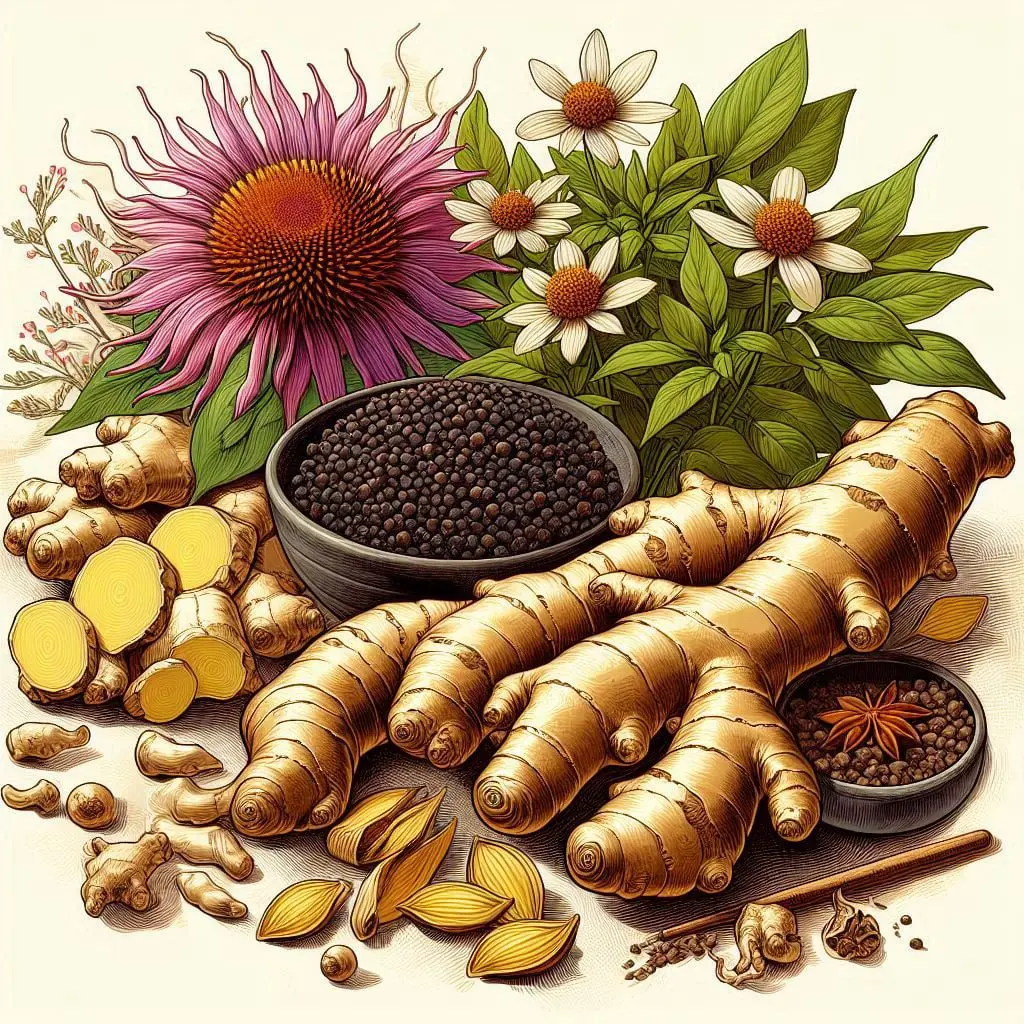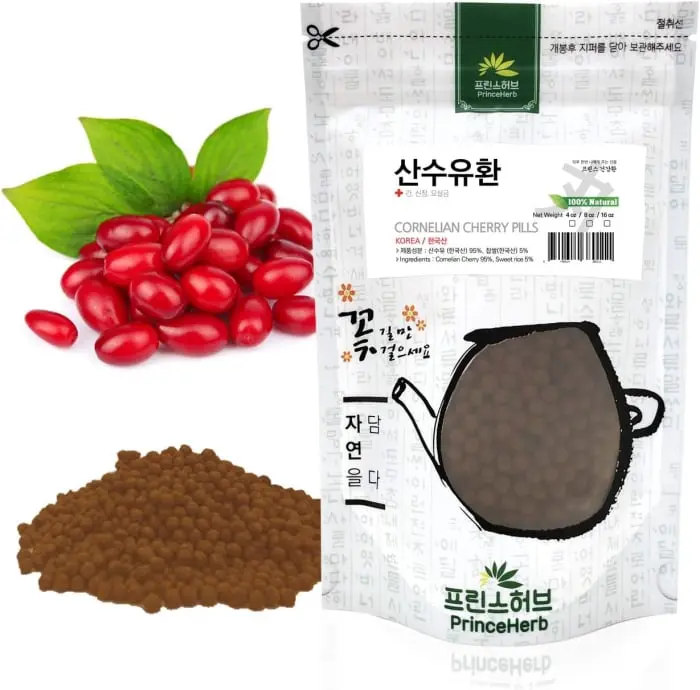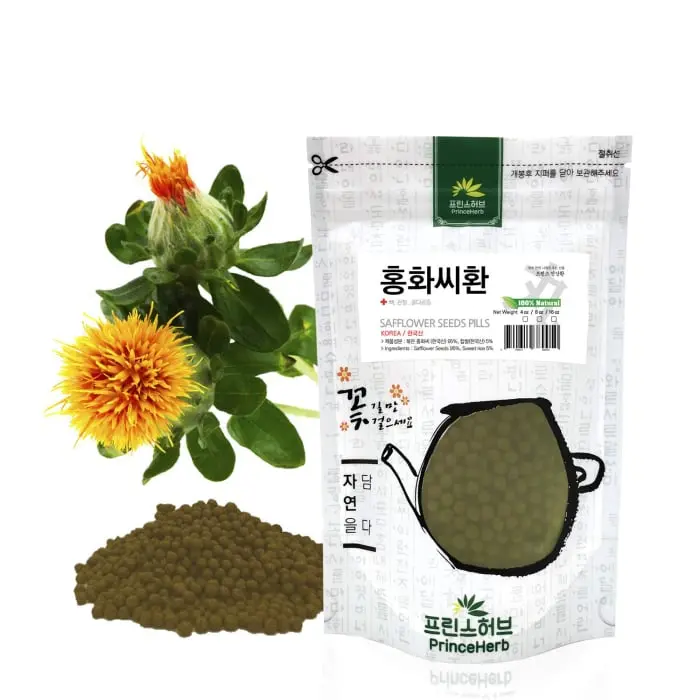Healing Powers of Nature: Exploring Korean Herbal Remedies

Article by Gil "hannaone"
© Copyright 2024. All rights reserved.
Image by AI
(Some of our links may earn us a commission, which helps support this site)
Korean herbal remedies, known as “hanyak,” have a rich history and are an integral part of traditional Korean medicine. For centuries, Koreans have relied on the healing power of nature to treat various ailments and maintain overall well-being.
These remedies are derived from natural ingredients such as roots, leaves, and seeds, and are believed to be effective in restoring balance and harmony within the body.
Hanyak, Folk and Herbal Remedies
Hanyak Overview:
Hanyak, a type of traditional Korean medicine that draws influences from traditional Chinese medicine, uses herbal and folk remedies to treat illnesses.
Hanyak can be used alongside Western contemporary therapies or as a stand-alone treatment.
In addition to acupuncture, moxibustion, cupping, and herbal remedies, Hanyak is part of the "Han bang" system.
Balancing Energies and Elements:
In traditional Korean medicine, "um" (similar to yin) and "yang" (body energies) are balanced.
It also aims to balance substances within the body and harmonize with the world.
Illness is sometimes attributed to unmet spiritual needs, so Hanyak seeks to restore this balance between the physical and spiritual realms.
Benefits and Uses:
Hanyak honors cultural heritage and pushes back against attempts to suppress traditional Korean medicine.
Historically, it ensured access to care for disadvantaged communities.
Researchers have studied various Korean herbal remedies, showing benefits for symptoms such as obesity and asthma.
Popular herbs include ginseng, licorice root, and ginger.
Classification of Herbal Medicines:
Korean herbal medicines are categorized into four types: roots, stems/branches, flowers/leaves, and fruits/seeds. Each type has unique properties and is used to treat specific ailments.
Each category has unique properties and is used to treat different conditions.
For example, ginseng (a root) is believed to boost energy and improve cognitive function, while licorice root can ease digestive issues and soothe sore throats.
Some Herbs, Roots, and Fruits and Their Possible Benefits
Ginseng, an herbal remedy with a long history of use in Asia, may have various positive effects on health:
Energy and Alertness: It is believed to enhance both mental and physical performance, potentially boosting energy levels.
Memory and Brain Function: Certain compounds found in ginseng, such as ginsenosides, may protect the brain from damage caused by free radicals. Consumption of ginseng on a regular basis may also improve cognitive function.
Blood Sugar Control: This herb has shown potential for regulating blood sugar levels.
Digestive Health and Heart Health: Some studies have linked ginseng consumption to improved digestion and heart health.
Immune Function: Ginseng is renowned for its immune-boosting properties.
It is worth noting that the specific benefits of ginseng can vary depending on the type (e.g., American or Asian) and its active compounds. 1
Sources: 1 Understanding Korean Medicine...
Licorice root, another herbal remedy is a well-known and highly prized part of the plant due to its potential medicinal properties.
Its components, such as glycyrrhizin, flavonoids, and coumarins, have soothing effects on coughs, sore throats, and respiratory issues.
Additionally, it aids in digestion and has immunomodulatory properties. 1 2
Sources: 1 Live to Plant 2 spiceography.com
Ginger, a versatile spice with a long history of use as an herbal remedy, may offer several health benefits:
Anti-Inflammatory and Antioxidant Effects:
Gingerol, the main bioactive compound in ginger, has potent anti-inflammatory and antioxidant properties. It helps reduce oxidative stress by combating free radicals in the body.
Nausea Relief:
Ginger is effective against nausea, including morning sickness during pregnancy.
It may also help reduce chemotherapy-related nausea and vomiting.
Weight Management:
Studies suggest that ginger supplementation can contribute to weight loss by reducing body weight and waist-hip ratios in people with overweight or obesity. 1
Digestive Aid:
Ginger aids digestion and may alleviate indigestion and cramps.
Joint and Migraine Pain:
It may ease joint pain and migraine symptoms.
Immune Support:
Ginger supports the immune system.
Incorporating ginger into your diet may provide these health benefits!
Sources: 1healthline.com/nutrition/11-proven-benefits-of-ginger
Cornelian cherry (Cornus mas) is a remarkable fruit with several possible health benefits:
Antioxidant Power:
Rich in phenolic compounds and ursolic acid, it exhibits strong antioxidant effects.
Antioxidants help protect cells from oxidative damage. 1 2.
Antimicrobial Properties:
Cornelian cherry has antimicrobial activity, supporting immune health.
Anti-Inflammatory Effects:
It may help reduce inflammation due to its bioactive components.
Heart Health:
Some studies suggest cardio-protective effects.
Digestive Support:
Beneficial for bowel complaints and digestion.
Cold and Flu Relief:
Traditionally used for common cold and flu symptoms.
Adding this delicious and nutritious fruit to your diet may boost your well-being! 3 4 5
Safflower seeds may offer several health benefits:
Heart Health:
High oleic safflower oil, rich in monounsaturated fatty acids, can help lower LDL cholesterol.
Lowering cholesterol reduces the risk of heart disease and stroke. 1 2
Antioxidant Properties:
Safflower yellow, a flavonoid, has antioxidant and anti-inflammatory effects.
It may support cardiovascular health 1.
Improved Blood Flow:
Safflower helps reduce hypertension, enhances blood flow, and dilates arteries.
It shows promise as a treatment for strokes 1.
Blood Sugar Control:
Some studies suggest safflower may help regulate blood sugar 3.
Reducing Belly Fat:
Moderate safflower seed consumption may reduce belly fat, especially in post-menopausal women 3.
Adding safflower seeds into a balanced diet for these potential health benefits!
Remember
The healing power of nature through Korean herbal remedies has stood the test of time and continues to be a popular form of treatment in modern times.
From balancing energies and substances within the body to honoring cultural heritage and providing access to care for marginalized communities, hanyak offers various benefits and uses.
If you would like to try Korean Herbal supplements, Prince Herbs has quite a bit to offer.
Herbal remedies may have side effects and may interact with other medications. Herbal remedies should be discussed with a physician or licensed herbalist before being used.
Disclaimer: Information on this page is not intended to diagnose, treat, cure, or prevent any disease or health condition. We do not make any nutritional or health claims. The information provided on this page is not intended to be a substitute for medical treatment. Please consult your medical care provider before using herbal medicine.


